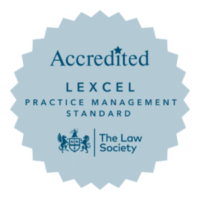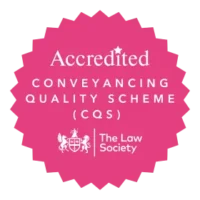HMRC – The Trust Registration Service
22nd Sep 2022
All UK express trusts and some non-UK trusts (unless otherwise excluded) in existence as at or post 6th October 2020, must be registered with the HMRC Trust Registration Service (TRS) by 1st September 2022 or 90 days after creation, (whichever is later)
With the above deadline fast approaching, Gemma Norris of the Wills Probate & Tax Planning Team at Thatcher + Hallam LLP addresses some Frequently Asked Questions to help trustees understand the registration process and their related obligations.
What is the TRS?
TRS stands for the Trust Registration Service. TRS is a digital platform governed by HMRC to formally register trusts with HMRC.
Why and when was TRS established?
TRS was established by HMRC in 2017 to meet the UK Government’s obligations to comply with anti-money laundering regulations per the EU’s 4th Money Laundering Directive (4MLD). Its key aim is to reduce the risk of trusts being used by criminals to launder money.
Following the subsequent implementation of the EU’s 5th Money Laundering Directive (5MLD), the regulations to formally register a trust with HMRC have been extended significantly and now include all UK “express-trusts” and some “non-UK Trusts” (unless they meet a certain exclusion in the legislation).
What is an express trust?
A trust deliberately created by a settlor, in writing, by way of a formal document such as a Deed or the Will of a deceased.
I am a trustee do I have to register via TRS?
The obligations for registering a trust lies with the trustees. Legally, all trustees have equal responsibility. However, for the purpose of TRS, the trustees must nominate a Lead Trustee. The Lead Trustee will need to register with HMRC and complete the TRS requirements online.
Trustee/s can also appoint an authorised Agent, such as an accountant or solicitor, to assist with the TRS process.
Until recently, only trustees of “taxable express trusts” were required to register and maintain details via TRS. However, per the updated regulations, the criteria now extends to all UK express trusts (unless otherwise excluded) and some “non-UK trusts”.
Which Trusts are excluded from registering via TRS?
The full list of exclusions are detailed at this section of the HMRC TRS Manual – exclusions .
Why do the TRS regulations refer to the co-ownership of property?
Perhaps a less obvious “trust vehicle” is an arrangement which confirms the ownership and control of jointly held assets. This might take the form of a Declaration of Trust, which determines the legal and beneficial owners of a property and their respective shares. This type of trust arrangement can also create an obligation to register via TRS.
I have completed a Declaration of Trust do I need to register via TRS?
Establishing details of the legal and beneficial owners is key in ascertaining the requirements to register or if any exclusions applies for TRS purposes.
As this example demonstrates:
David and Sylvia purchase a property together, their names are recorded as the legal owners of the property on the title at the Land Registry. As part of the purchase process, David’s parents helped finance the couple’s deposit (the so called “Bank of Mum and Dad” arrangement). A Declaration of Trust was completed to formalise the financial arrangement and duly noting the interest of David’s parent’s. Although the names of David’s parents are not entered on the Land Registry title, per the Declaration of Trust, David’s parents still have a beneficial interest in the property.
HMRC’s current guidelines direct that the above trust arrangement would need to be registered via TRS.
What are the TRS deadlines?
As detailed above, trusts requiring registration fall into the following 2 categories:
- Taxable trusts – the deadline for registration of trusts in this category varies, as does the criteria to maintain the TRS trust records, which is further detailed at HMRC TRS Manual – deadlines section.
If a Tax Return is required, trustees must declare the TRS record is up to date on the Return and ensure the TRS record is maintained accordingly.
- Non-taxable trusts – (unless otherwise excluded) in existence as at or created after 6th October 2020 must register (even if the trust is now closed) within
-
- 90 days of being created or otherwise becoming registerable.
or
- by 1 September 2022 (whichever is later).
- Trustees should also note that for both taxable and non-taxable trusts any change to the trusts details and/or circumstances must be registered within 90 days of the date of the change per HMRC TRS Manual – manage your trust’s details
What happens if a trustee does not register a trust with TRS?
HMRC have confirmed that failure to register or keep information up to date on time may lead to a financial penalty, as set out in this section of the HMRC TRS Manual – penalties.
I am a trustee, what should I do now?
Trustees have a legal obligation to comply with HMRC’s reporting criteria. Trustees should take steps to ascertain their obligations under the TRS requirements and register any trust which falls within the reporting regulations.
HRMC are regularly amending their requirements and trustees should always refer to the current HMRC guidance in the HMRC TRS Manual
If a trustee is not clear of their obligations, we recommend they take specific legal advice based on their trust’s circumstances to establish their duties. At Thatcher + Hallam, we have highly experienced trusts lawyers who are able to advice and assist with the TRS process.
For further information or advice, contact us via telephone or on the “contact us” page of our website.
Related news
Articles you may find useful
Like this article? Sign up for our regular newsletters







